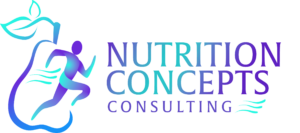The Role of Nutrition in Managing Cardiovascular Health
Nutrition plays a pivotal role in maintaining cardiovascular health, and adopting a heart-healthy diet can significantly reduce the risk of heart disease. A balanced diet that emphasizes whole foods over processed ones is fundamental. Incorporating a variety of nutrient-dense foods ensures adequate intake of essential vitamins, minerals, and antioxidants, all of which support heart function and overall well-being.
Heart-Healthy Nutrients
Healthy fats are crucial for cardiovascular health.
- Healthy Fats: These fats should replace saturated fats, prevalent in red meat, full-fat dairy products, butter, and lard since they elevate LDL’s and increase your risk for heart disease.
- Monounsaturated and Polyunsaturated Fats:
- Sources: Olive oil, avocados, nuts, seeds, and fatty fish.
- Benefits: Reduce LDL (bad) cholesterol and increase HDL (good) cholesterol.
- Omega-3 Fatty Acids:
- Sources: Salmon, mackerel, flaxseeds, chia seeds, walnuts.
- Benefits: Anti-inflammatory properties, reduce risk of arrhythmias and lower triglycerides.
- Fiber is another key component of a heart-healthy diet. Consuming at least five servings of fruits and vegetables daily provides essential vitamins, minerals, fiber, and antioxidants while being low in calories.
- Soluble Fiber:
- Sources: Oats, barley, beans, lentils, fruits (apples, berries, citrus fruits), and vegetables.
- Benefits: Lowers cholesterol levels, helps control blood sugar levels.
- Insoluble Fiber:
- Sources: Whole grains, nuts, vegetables.
- Benefits: Promotes digestive health.
- Soluble Fiber:
Foods to Limit
- Saturated Fats:
- Sources: Red meat, full-fat dairy products, butter, lard.
- Impact: Raise LDL cholesterol, increasing heart disease risk.
- Trans Fats:
- Sources: Partially hydrogenated oils, fried foods, baked goods, snack foods.
- Impact: Raise LDL cholesterol and lower HDL cholesterol, highly inflammatory.
- Added Sugars:
- Sources: Sugary drinks, candies, baked goods, cereals.
- Impact: Contribute to obesity, type 2 diabetes, and increased risk of heart disease.
- Sodium:
- Sources: Processed foods, canned soups, salty snacks, restaurant meals.
- Impact: High sodium intake is linked to high blood pressure, increasing heart disease risk.
Lifestyle and Dietary Tips
Practicing portion control is vital to prevent overeating and maintain a healthy weight.
- Portion Control:
- Practice mindful eating and control portion sizes to prevent overeating.
- Use smaller plates and bowls to help manage portion sizes.
- Hydration:
- Drink plenty of water throughout the day.
- Limit sugary drinks and alcohol.
- Cooking Methods:
- Opt for baking, grilling, steaming, or sautéing instead of frying.
- Use herbs and spices to flavor food instead of salt.
- Reading Labels:
- Check food labels for saturated fat, trans fat, sodium, and added sugars.
- Choose products with fewer and more natural ingredients.
Incorporating Physical Activity
Regular physical activity complements a heart-healthy diet.
- Regular Exercise:
- Aim for at least 150 minutes of moderate-intensity aerobic activity per week.
- Include muscle-strengthening activities on two or more days per week.
- Benefits: Improves cardiovascular health, helps maintain a healthy weight, reduces stress.
Monitoring and Adjusting Diet
- Regular Health Check-ups:
- Monitor blood pressure, cholesterol levels, and blood sugar levels.
- Adjust dietary habits based on medical advice and health status.
- Personalized Nutrition:
- Consider working with a Registered Dietitian Nutritionist for a personalized eating plan.
- Tailor nutrition advice to individual health needs and preferences.
By following these guidelines and making heart-healthy food choices, you can significantly reduce the risk of cardiovascular disease and promote overall heart health.
Regular health check-ups are important to monitor blood pressure, cholesterol levels, and blood sugar, allowing for dietary adjustments based on medical advice. Personalized nutrition advice from a Registered Dietitian Nutritionist can tailor dietary recommendations to individual health needs and preferences. By making informed food choices and maintaining an active lifestyle, you can significantly enhance cardiovascular health and reduce the risk of heart disease. Adopting these practices early and consistently can lead to long-term benefits, promoting not only heart health but overall well-being.
